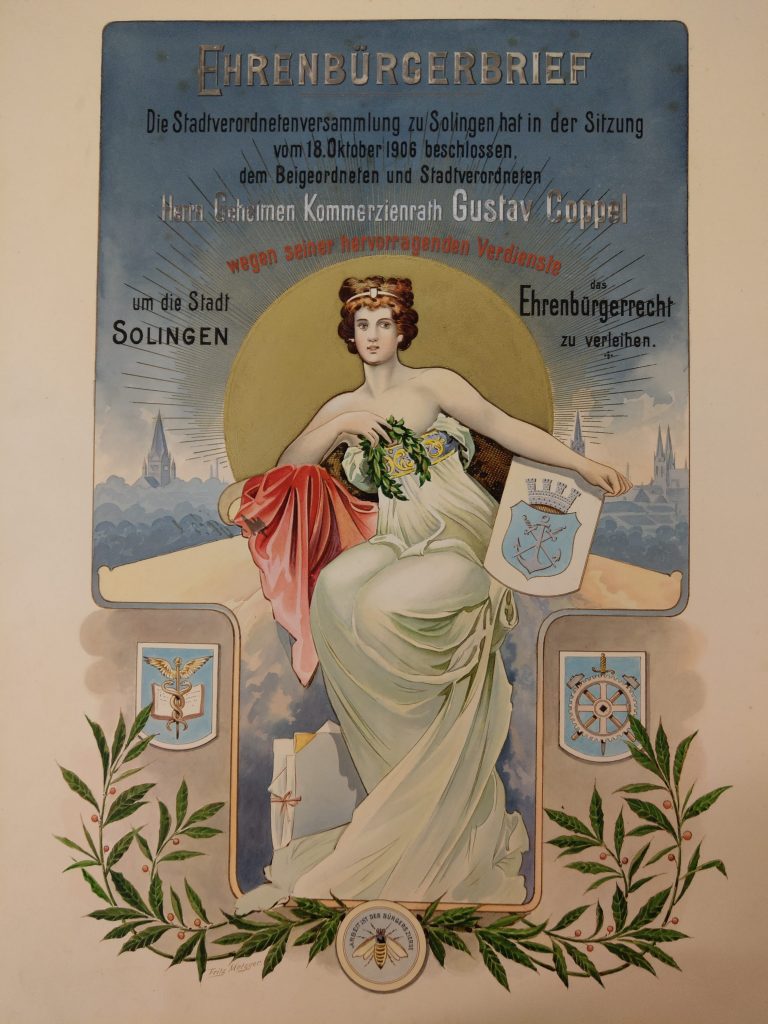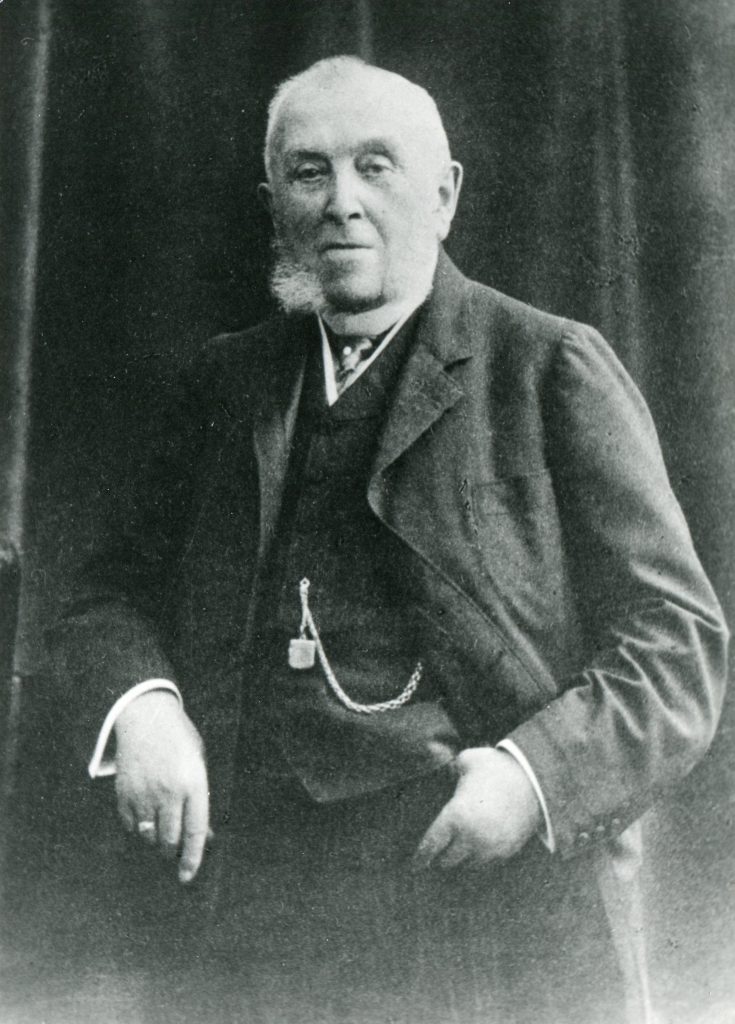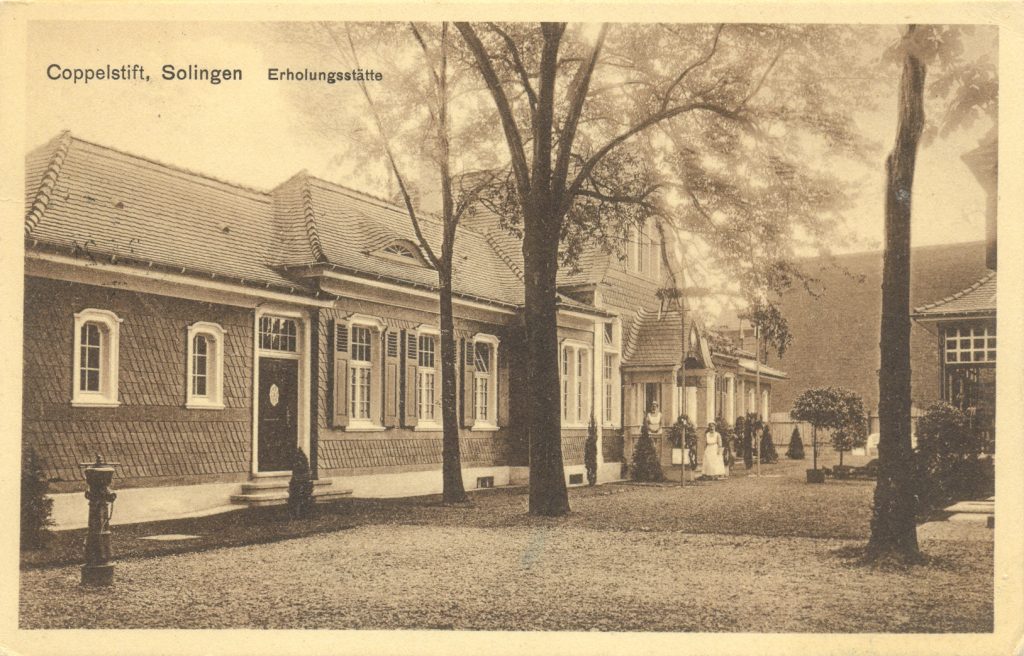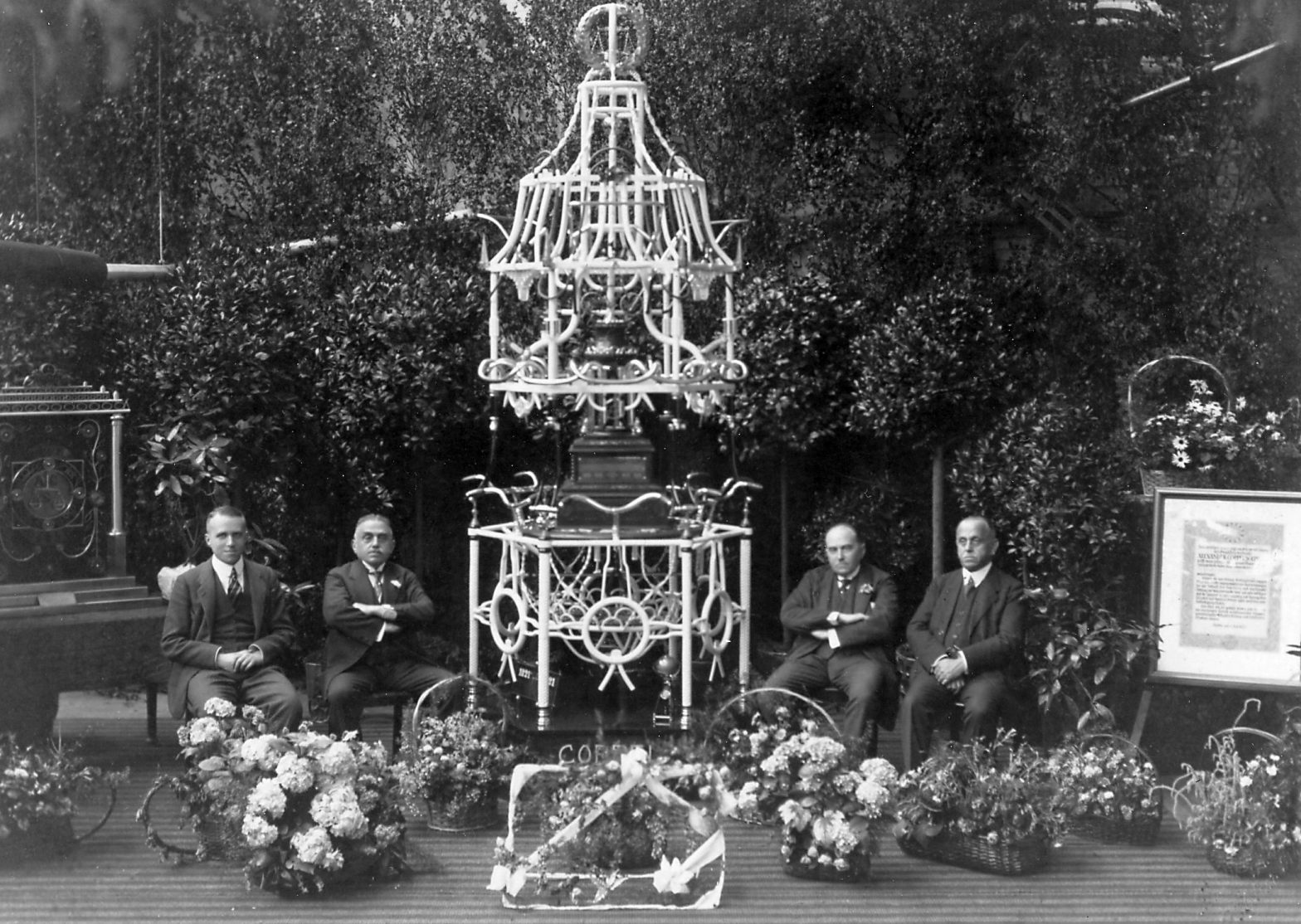Stop 6: The Coppelstift foundation
Wupperstraße 82 – go to map – go to starting point
We are standing here in front of the Coppelstift, a foundation started by Gustav Coppel. Gustav Coppel was the city’s most important patron. In 1906, the town council unanimously voted to grant him honorary citizenship. In his acceptance speech, Gustav Coppel showed himself to be a true local patriot of Solingen:
“For me, the soil in Solingen, as it were, hallowed. This is where my grandparents have already lived in happiness and contentment for more than half a century. […] I give you the sacred promise that, as long as I live, I will be at the service of every one of my good Solingen citizens, whatever their class, faith and political persuasion, as far as my strength will go.”


Gustav Coppel was serious about this promise. A sum of 119,000 marks from the foundation of Gustav Coppel and other family members made it possible to set up the Coppelstift in 1912. This was the largest donation the city of Solingen had ever received up to that time. The Coppelstift was a convalescent home, a welfare centre and a mothers’ advice centre. Gustav Coppel said this about it at the “inauguration festivities” on 14 May 1912:
“My dearest wish is that the rest home may bring recovery and invigoration to the weary, that the children who have fallen behind in their development, the overworked men and women may find here rest, new strength and new courage to face life. May peace, morality and conviviality always reign in this space, affectionate goodwill, loving support, love for the city, love for the fatherland.”

Further donations from the founder’s family benefited the Coppelstift foundation in the years that followed. Hermann Merkel, editor of the then social-democratic Bergische Arbeiterstimme newspaper, was a determined opponent of the war and a political opponent of Gustav Coppel. But even he paid great respect to the entrepreneur after his death in an obituary dated 28 December 1914:
“The big industrialist Gustav Coppel was one of the few capitalists who, even in the modern rush for profit, preserved their personal character and their free view beyond the business ledger, and who are enabled by a high education of mind and spirit, to, at least, suspect the artificiality and injustice of the production of surplus value. This inkling of the economic connections expressed itself in the deceased in a strong charitable urge.”
The Coppelstift was transferred to the National Socialist People’s Welfare Organization (NSV) after 1933. The organisation did not want the name of the foundation to remind people of its Jewish founder, so it changed the name to “Städtisches Säuglingsheim”, the municipal home for babies, in 1935.
Today, the buildings of the Coppelstift foundation house the psychological services of the city of Solingen. They include the school psychological service, the psychological family and educational counselling service, and the pregnancy advisory service. Since September 2000, an exhibition on the company and family history of the Coppels has been on display in the foyer of the complex.
Due to the city’s austerity measures, the abandonment of the buildings in Wupperstraße and the spatial consolidation with the city’s social services in the city hall were up for debate in the 2010 and 2012 civic budgets. But the city council repeatedly decided against this because the savings potential was too low and because it was unclear whether the Coppelstift’s regulations could be reconciled with this.
Thus, the Coppel family’s commitment to the Coppelstift continues to protect this important social institution and the adjacent green space, the Gustav Coppel Park, to this day.

